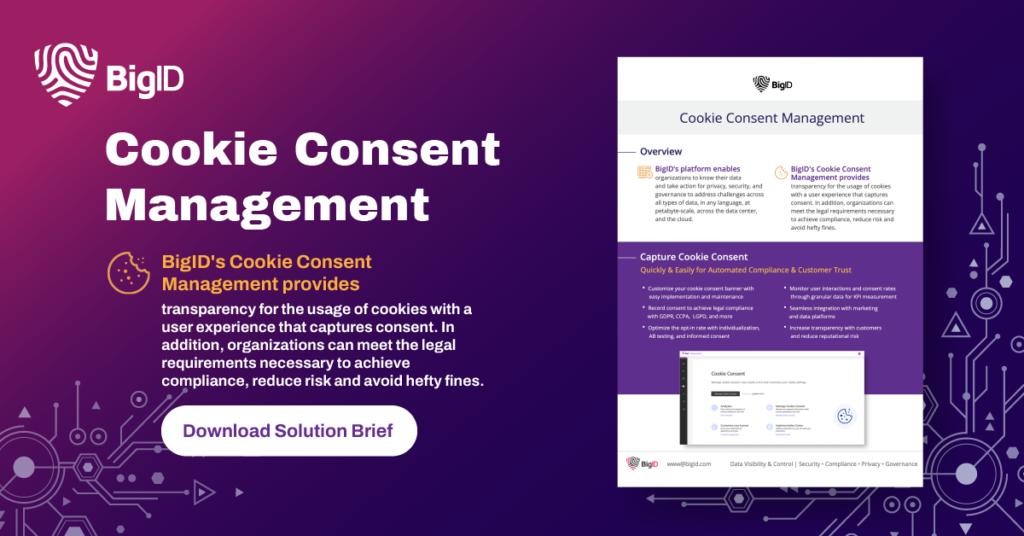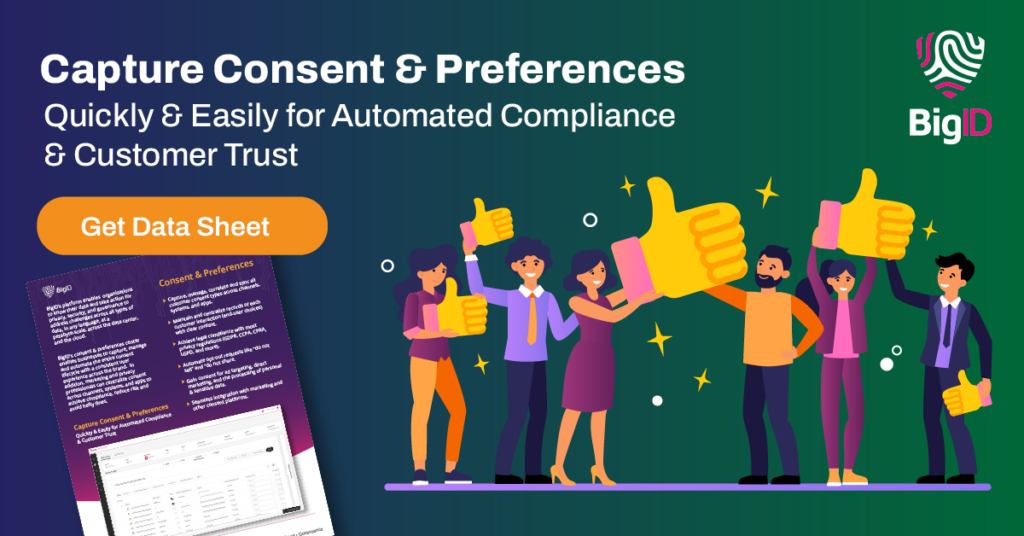As privacy regulations continue to evolve, organizations are faced with the challenge of managing cookie policies effectively. Understanding the importance of transparency, consent, and compliance, we’ll explore the best practices, tools, and strategies to help you navigate the complex terrain of cookie policy management. Whether you’re an organization striving to ensure regulatory compliance or an individual concerned about your online privacy, read on to learn the intricacies of cookie policies and equip yourself to make data-driven decisions.
What is a cookie policy?
A cookie policy is a document or statement that provides detailed information about the use of cookies on a website. It outlines how cookies are used, their purposes, the types of cookies employed, and any third-party involvement in data processing.
Why do you need one?
Businesses need a cookie policy for several reasons:
- Legal Compliance: Many jurisdictions, such as the European Union under the GDPR, require businesses to inform users about the use of cookies and obtain their consent, especially for non-essential cookies. A cookie policy helps businesses comply with these legal requirements by providing clear and comprehensive information about cookie usage.
- Transparency and User Trust: A cookie policy demonstrates transparency and helps build trust with users. By providing clear and detailed information about the types of cookies used, their purposes, and any data collection or sharing practices, businesses show their commitment to protecting user privacy and respecting their choices.
- User Awareness and Control: A cookie policy educates users about the implications of cookie usage. It helps users understand the data that cookies collect, how it is used, and their options for managing cookie preferences. This empowers users to make informed decisions about their online privacy.
- Third-Party Relationships: If a website uses third-party cookies, such as those from advertising networks or analytics providers, a cookie policy informs users about these relationships. It ensures transparency by disclosing the involvement of third parties and providing links to their respective privacy policies.
- Risk Mitigation: A clear and compliant cookie policy helps businesses mitigate legal risks. It demonstrates a commitment to privacy compliance and can serve as evidence of the steps taken to inform and obtain consent from users, reducing the likelihood of regulatory penalties or legal disputes.
- Cross-Border Data Transfers: If a business operates internationally and collects personal data from users in different jurisdictions, a cookie policy helps facilitate compliance with various data protection laws. It ensures that users from different regions receive the necessary information and consent mechanisms specific to their respective legal requirements.
Best practices for creating a cookie policy template
When creating a cookie policy template, it’s important to incorporate the following best practices:
- Clear and Concise Language: Use plain and easily understandable language to ensure that your cookie policy is accessible to all users. Avoid legal jargon and technical terms that might confuse readers.
- Comprehensive Coverage: Ensure that your cookie policy covers all types of cookies used on your website, including both first-party and third-party cookies. Be transparent about the purposes of each cookie and the data collected, such as analytics, personalization, or targeted advertising.
- User-Friendly Format: Present the cookie policy in a well-organized and easily scannable format. Use headings, subheadings, bullet points, and paragraphs to break down the information into digestible sections. Consider using a table to list the different types of cookies and their specific details.
- Consent Mechanisms: Clearly outline how users can provide or withdraw consent for cookies. Explain the different options available, such as through a cookie consent banner or browser settings. Include instructions on how users can manage their cookie preferences or opt-out if desired.
- Links to Third-Party Policies: If your website uses third-party cookies or integrates with external services, provide links to their respective privacy policies or cookie policies. This ensures transparency and helps users understand how their data is handled by those third parties.
- Regular Updates: State that the cookie policy is subject to change and outline the process for updating it. Commit to reviewing and updating the policy periodically to reflect any changes in cookie usage or privacy regulations.
- Accessibility Considerations: Ensure your cookie policy is accessible to individuals with disabilities. Follow accessibility guidelines by providing alternative text for images, using clear and readable fonts, and considering color contrast for better visibility.
- Clear Contact Information: Include contact details, such as an email address or a dedicated privacy contact, so users can reach out with any questions or concerns regarding the cookie policy or their data.

How often should the policy be updated?
The frequency of updating a cookie policy may depend on various factors, including changes in applicable laws, updates to cookie usage practices, and modifications to the website or its third-party services. Consider these actions to help determine how often a cookie policy should be updated:
- Legal and Regulatory Changes: Keep track of any updates or revisions to relevant data protection and privacy laws, such as the GDPR or CCPA. If there are significant changes to the legal requirements regarding cookies or user consent, it is advisable to update the cookie policy accordingly.
- Changes in Cookie Usage: If there are modifications to the types of cookies used, their purposes, or the data collected through cookies, the policy should be updated to reflect these changes. For example, if new tracking technologies are implemented or third-party services are added or removed, the cookie policy should be revised accordingly.
- Website Changes: Any substantial changes to the website’s functionality, design, or features may impact cookie usage and require an update to the cookie policy. For instance, if a user login system is implemented or a new analytics tool is integrated, the policy should reflect these changes.
- Third-Party Relationships: Regularly review the use of third-party cookies and any changes in the involvement of third-party service providers. If new third-party services are added or existing ones are replaced, the cookie policy should be updated to disclose these relationships and provide links to the updated privacy policies of those third parties.
- User Feedback or Concerns: If users raise concerns or questions about the cookie policy or express confusion about cookie usage, it may be a signal to review and update the policy to provide clearer information or address user concerns.
- Periodic Review: It is generally good practice to periodically review and update the cookie policy, even in the absence of specific triggers. Conducting regular reviews, such as annually or biannually, ensures that the policy remains accurate, up to date, and aligned with evolving best practices in privacy and data protection.
Cookie Policy vs Privacy Policy
A cookie policy specifically focuses on the use of cookies and similar technologies on a website or online platform. It outlines the types of cookies used, their purposes, and the information they collect from users. The cookie policy typically explains how users can provide or withdraw consent for the use of cookies and may provide instructions on managing cookie preferences. It is a specific policy that addresses the use and management of cookies on a website.
On the other hand, a privacy policy is a broader document that encompasses all aspects of how an organization collects, uses, stores, and protects user data. It provides details about the types of personal information collected, the purposes of data processing, the rights of individuals regarding their data, data sharing practices, security measures, and more. The privacy policy is a comprehensive statement that covers data protection practices beyond just cookies, including how personal information is handled throughout the entire organization.
Managing Cookie Policies with BigID
BigID is an intuitive and comprehensive data discovery platform for privacy, security, governance, and compliance. BigID can assist your organization in managing their cookie policies with:
- Deep Data Discovery: BigID’s Data Discovery Foundation is the leading solution for automated data discovery of personally identifiable information (PII). With the use of advanced AI and machine learning, BigID automatically and accurately canvases your organization’s entire data landscape and classifies according to context. It can identify different types of cookies, such as essential, functional, analytics, and advertising cookies.
- Data Mapping: BigID’s Data RoPA App maps all your organization’s data sources, assets, and owners to validate data flows and ensure compliance. Gain better insight into your privacy risk and take proactive steps to mitigate.
- Consent Management: BigID’s Consent Governance App offers a centralized view of consent— giving you the power to map, manage, and align consent policies with individuals and their respective data sources.
- Automated Data Deletion: BigID’s Data Deletion App allows you to collect, manage, and validate data deletion requests. Quickly and accurately retrieve records for data subjects and define policies for legal holds or erasure to ensure compliance. Only store what you need and efficiently delete the rest to improve risk posture.
- Privacy Impact Assessments: BigID’s PIA Automation App supports privacy impact assessments (PIAs) related to cookies. Streamline collaboration with data owners, simplify workflows, and generate customized PIA templates to assess privacy risk.
Start leveraging BigID’s Privacy Suite for efficient and painless privacy compliance—schedule a 1:1 demo today.



